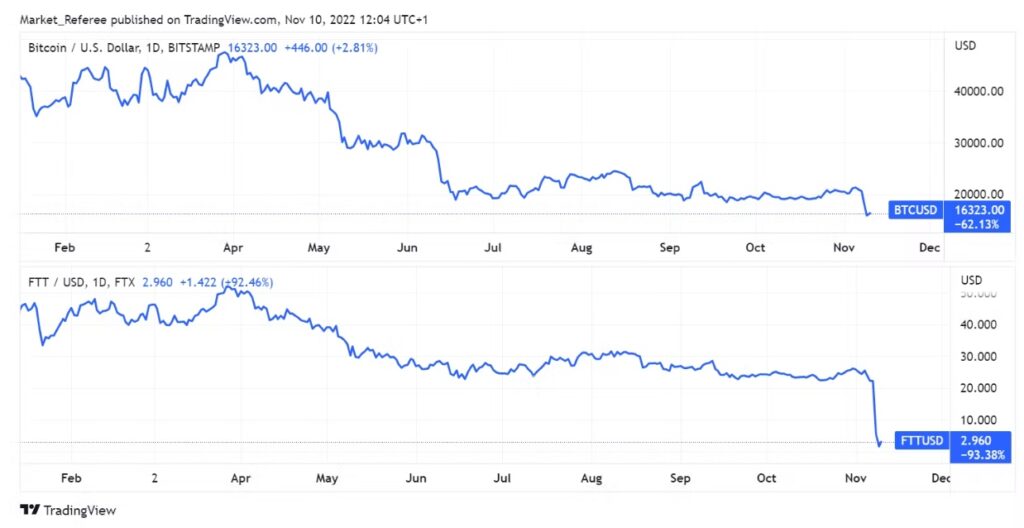How is that possible that digital currencies remain in a downtrend, even though “smart money” continues to pile into crypto? Shouldn’t it be the other way around, with Bitcoin, Ether, and other tokens surging to new highs? Theoretically, yes.
In practice, markets follow a global route, which was lately steered by pessimism. In other words, the correlation between traditional assets and deteriorating macro outlook did their “dirty” job.

Regulatory scrutiny also did not add optimism. Ether, for example, suffered a severe correction following comments from the head of the Securities and Exchange Commission that ether might need to be treated as a security. Traders also fear further tightening of the monetary policy stance. It is estimated that outflows from digital asset investment products totaled $19m in the first week of November.
Finally, yet importantly, internal scandals put pressure on the market. One of the hottest topics now – is FTX contagion fears. The platform has come under pressure after Changpeng Zhao, head of rival exchange Binance – the world’s largest – said his firm would liquidate its holdings of the FTX token due to unspecified “recent revelations”. No wonder, FTT tokens plunged over 80%.
What is next?
Investing in such a risky environment is no better than gambling. In a longer time horizon, on the other hand, things could get back to normal. A driving force in this sense will be the “adoption”. Back in August, Coinbase and BlackRock unveiled a crypto partnership that “will let the investment management company’s institutional clients use its service to buy cryptocurrency.”
Most recently, Nomura announced plans to build a 50-strong team for its crypto spin-out and is aiming to start trading digital assets early next year as it makes a significant push into the sector. In the US, Fidelity Investments, the largest 401(k) administrator by assets, began offering a crypto fund to workers. Investors can buy into Bitcoin, Ethereum, Solana, Polkadot, Cardano, and USDC.
It is worth mentioning that the process will not be fast. Investments in crypto by employers could be subject to legal risks. In accordance with the Retirement Income Security Act of 1974, employers must consider factors such as risk, return, cost, diversification benefits, and whether an investment is in the best interests of the collective workforce.
No more blind zones
As crypto becomes mainstream, regulators will increase pressure on companies. These, on the other hand, will be forced to disclose all the necessary information, banning private cryptocurrencies, and eliminating the essence of the industry. Earlier, Senators Cynthia Lummis and Kirsten Gillibrand introduced Landmark Legislation to create a regulatory framework for digital assets.
The FTX story will also lead to stricter oversight of the industry. The good news is that eventually, the industry will recover from its losses. Will Benefits Outweigh Risks? In case of a bullish scenario in the future, this could be a good time to buy cheaper assets. Also, the money made from panic sales of Altcoins could return to the market once the volatility decreases.



